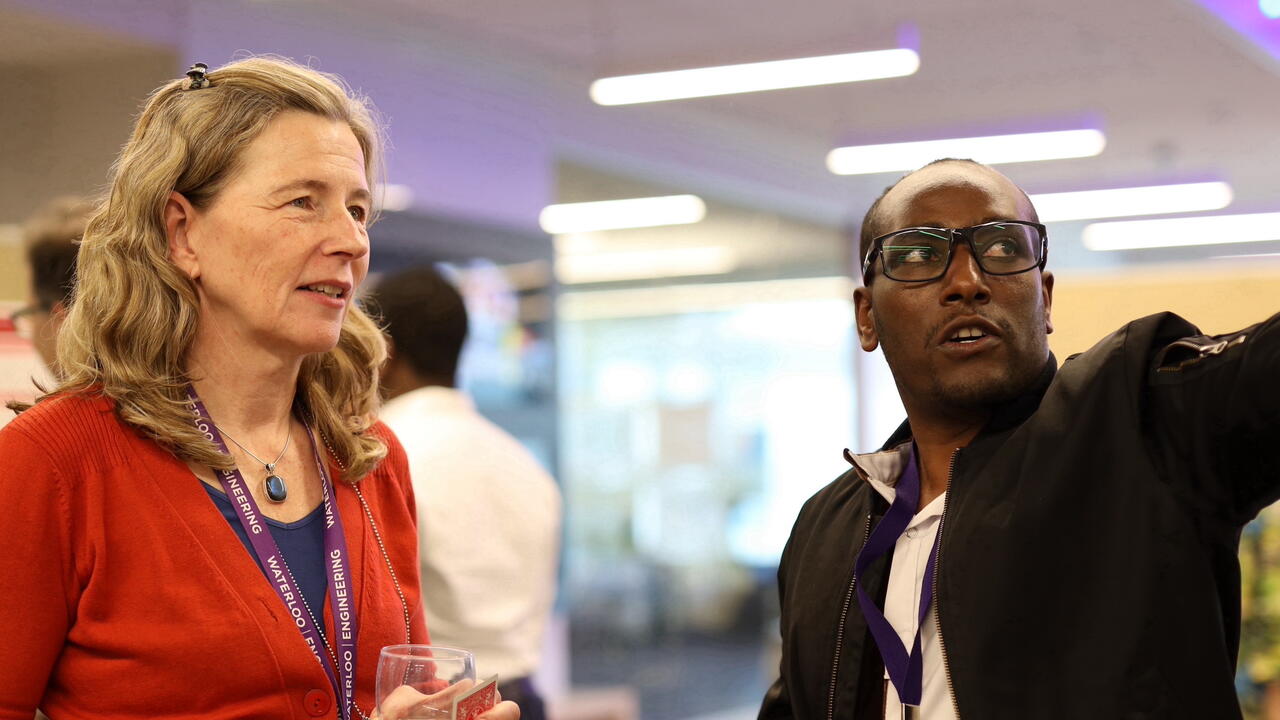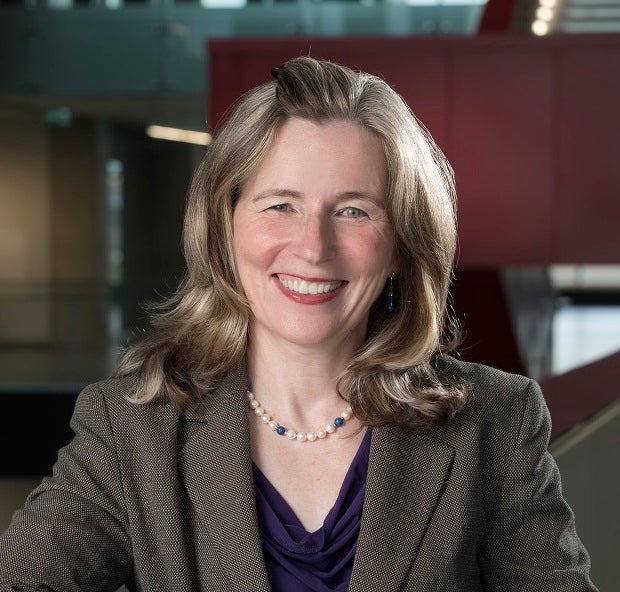
Striving for better
Dr. Mary Wells, dean of Waterloo Engineering, looks to the future of academic excellence

Dr. Mary Wells, dean of Waterloo Engineering, looks to the future of academic excellence
By Mary Wells Faculty of EngineeringWhen local community leaders founded the University of Waterloo in 1957, they introduced an unconventional approach to education that merged academic and research excellence work with work-integrated learning. Over the past 66 years, Waterloo Engineering has delivered on this mission to attract and bring together top student talent, industry-leading employers and world-renowned faculty members.
We have achieved a great deal since the University first opened its doors. Now, with 2057 clearly in our sights, we must review our mission to stay on track in a rapidly changing and complex world.
Humanity’s most pressing challenges are no longer abstract ideas or intangible prospects. Climate change is, in my view, one of the biggest issues we face. Its disruptions are visible everywhere, even in our own backyards, with food insecurity, a lack of decent housing, health-care failings and water shortages dominating conversations and news reports.
And yet we need to keep producing energy for a growing – and spreading – human population dependent on a planet of finite resources.
This means we need to produce engineers with the critical thinking, social awareness, scientific rigour and innovative design skills to make meaningful differences – fast. This ultimately is the role of universities; to add value to society by helping to develop civic-minded people and engaged citizens who can solve problems.
Enabling future-focused engineers through diversity
The roots of engineering are in public service. It is our responsibility to train diverse cohorts of future engineers who can serve the greater good. Our admissions process is strict about academic results but top marks alone don’t guarantee entrance. We enrol students who are high achievers and who demonstrate a committed desire to help society do and be better.
Diversity is crucial and encompasses all sorts of differences. The more our students represent the multitude of lived experiences from around the world, the more they can engage with different realities, needs and perspectives – all within an engineering environment designed to train problem-solvers who can work in a team.
Currently, our female students make up 31 per cent of the total engineering student body, which is good but not good enough. We need to increase the overall diversity of our engineering student population and, with the support of donors and industry partners, have established scholarships and initiatives to help us achieve this goal.
Working with non-engineers for better outcomes
Studies show that a diverse team is more creative and innovative, producing more appropriate solutions that deliver better outcomes. This is crucial preparation for our students who will step into a workplace of interdisciplinary relationships tasked to address global challenges. It is our goal to train engineers who can integrate their knowledge and successfully partner with practitioners in other fields to help redesign our world for the better.
 Dr. Mary Wells, dean of Waterloo Engineering.
Dr. Mary Wells, dean of Waterloo Engineering.
I feel strongly about developing engineers’ intellectual capabilities beyond their traditionally technical roles.
Engineers can no longer simply look at a problem and ask if it can be solved.
Instead, they need to define the problems that should be solved. They need to take a human-centred approach to their work that assesses impact, relevance and risks.
Our Capstone symposia, which showcase students’ fourth-year design projects are, a great opportunity to encourage interdisciplinary teamwork. This gives the problem-solving abilities of students valuable breadth and depth, challenging them to think beyond the technology at play and consider the human and environmental aspects of innovation too.
Educating with intention
As educators, I believe we need to create more intentional pathways for our students to help them achieve their ambitions and realize their potential. Today’s engineering students want to make a positive impact, some as entrepreneurs, some as researchers, others by working in sectors such as health-care or environmental management. My Future Leaders proposal looks at how we can assist students to better understand their mission and build a study plan that gets them where they want to go.
This aligns with the University’s Futures Framework, which asks how we envision the future of humanity and how we can shape it to support a better world for generations to come. As always, we start by putting our students first, using our strengths to unlock theirs and guiding their training with the hope that together we can improve society through thoughtful innovation.
As we look to the future, our global interconnectedness is as important as our regional commitment. The University now belongs to a bigger and broader landscape of talent, opportunities and needs than it did in 1957. Our entrepreneurial drive is sustained by the need to problem-solve issues, topics and events that know no physical borders and affect us all through their impact.
Our ability to think globally and operate locally is critical to our students’ learning experience, our cooperative education programs, our researchers’ work and the overall quality of education that we deliver now and into the future. Our reputation and relevance in 2057 will be determined by the successes of our students and researchers – just as it is today.

Read more
Upside Robotics secures new funding to accelerate the future of sustainable farming

Read more
Redefining capstone learning by bringing students, faculty and community partners together to tackle real-world challenges

Read more
Here are the people and events behind some of this year’s most compelling Waterloo stories
The University of Waterloo acknowledges that much of our work takes place on the traditional territory of the Neutral, Anishinaabeg, and Haudenosaunee peoples. Our main campus is situated on the Haldimand Tract, the land granted to the Six Nations that includes six miles on each side of the Grand River. Our active work toward reconciliation takes place across our campuses through research, learning, teaching, and community building, and is co-ordinated within the Office of Indigenous Relations.